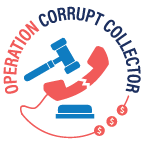- Office of Consumer Affairs and Business Regulation

Nobody likes getting debt collection calls. But have you ever gotten one for a debt you already paid — or you know isn’t yours? Or have you been threatened and harassed by a debt collector until you paid up? If so, we want you to know how to protect yourself.
Today, in partnership with federal and state law enforcement partners, the Federal Trade Commission (FTC) announces Operation Corrupt Collector, a federal-state law enforcement sweep against fake and abusive debt collectors. The operation includes five FTC actions, with two new cases announced today.
In each of the new FTC cases announced today, the companies claimed to be collecting on debt that they can’t legally collect, or that people don’t actually owe. In these cases, the companies made robocalls to people, telling them that they’ve been sued, or soon will be, if they don’t pay up.
In cases announced today by our law enforcement partners, the companies called people claiming to be law enforcement officials or attorneys — scaring people with threats of arrest at their workplace, prison, or suspension of their driver’s license if they didn’t pay right away.
Have you gotten a collection call about a debt you don’t recognize? Before you pay:
- Find out who’s calling. Get the name of the collector, the collection company, its address, and phone number.
- Get “validation” information about the debt. Within 5 days of first contacting you, debt collectors must “validate” or tell you the amount of the debt, the name of the current creditor, and how to get the name of the original creditor.
- Don’t respond to threats. When scammers threaten to arrest you, suspend your driver’s license, or call your employer if you don’t pay immediately, hang up and report the collector to the FTC at gov/complaint.
- Do your own detective work. Check with the original creditor. Is the debt yours? Did they sell your debt or hire a company to collect it? If so, is the caller the original creditor’s collector?
- Dispute the debt. If you think you don’t owe some — or all — of the debt, dispute it with the collector by mail, or online, even if you got validation information.
Learn more about dealing with debt collection at ftc.gov/debtcollection.

